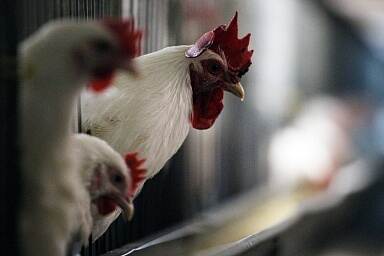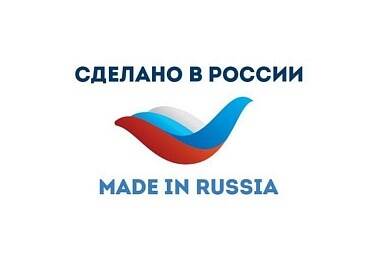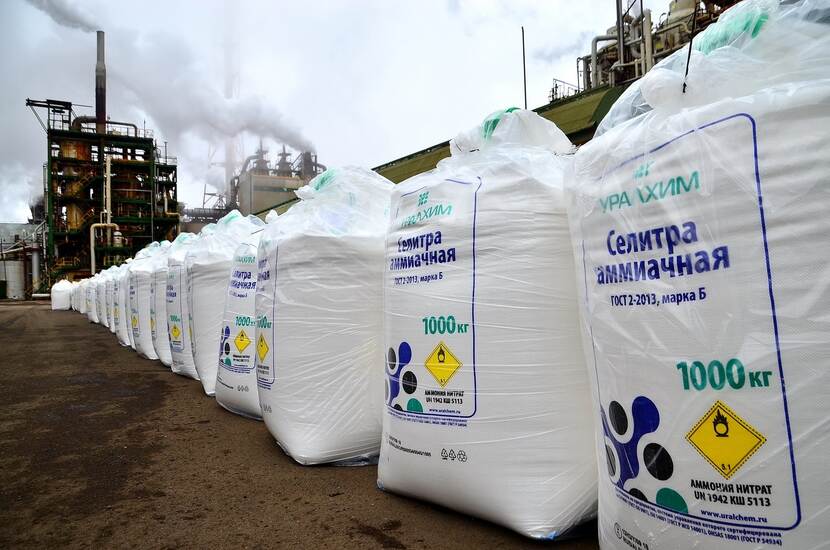Overview of Russian Agribusiness Sector #2
Highlights of Russian Agribusiness sector prepared by the Office of Agricultural Counsellor of the Embassy of the Kingdom of the Netherlands in Moscow. - 15 March 2021

Russian poultry market
A group of retailers has appealed to the Russian government, seeking permission to sharply raise prices for poultry and eggs on the grocery shelves.
As poultry companies plan to increase their prices by about 10% against the backdrop of the continuing avian influenza (AI /H5N8) epidemic, supermarkets want to safeguard their margins.
The product volumes on the market have shrunk recently due to a seasonal factor and due to the spread of AI in Southern Russia. According to Sergey Belyakov, , from there, the disease began spreading into European Russia.
Sergey Belyakov, chairman of the Russian retail companies association, is quoted as saying that the companies are experiencing a significant decline in the poultry population, while production costs are soaring. The Russian poultry industry’s production costs have jumped by nearly 6% in February, compared to January, the Russian union of poultry producers Rosptitsesoyuz estimated. In 2020, the production costs went up by 20% to 25%, but poultry companies constrained the rise in prices, bearing certain costs, Rosptitsesoyuz said.
The shortage and rise in prices for hatching eggs may force the enterprises, which provide 20% of the poultry meat market, to reduce their production. Within two to three years, the problem can be solved by subsidizing the production of hatching eggs in Russia. But today it is necessary to restore their imports from countries that have come under restrictions due to bird flu, experts say.
At the meeting held at the Ministry of Agriculture it was noted that enterprises providing about 20% of the Russian poultry meat market may reduce production due to rising prices for hatching eggs. It goes about poultry farms that do not have their own reproducers and which only buy imported hatching eggs.
According to Sergei Lakhtyukhov, general director of the National Union of Poultry Breeders, now imports account for 15-20% of all hatching eggs used in Russia (the total market volume is about 700 million pieces in 2020).
In order to reduce the industry's dependence on imported hatching eggs, it is planned by the Ministry of Agriculture to stimulate the development of their own production. One instrument will be providing for the reimbursement of capital costs for the construction and modernization of facilities for the production of hatching eggs from 2022.
Another might be a phased increase in the import customs duty rate for these products is being discussed: from January 1, 2022 - from 0 to 5%, from January 1, 2023 - to 15%. Sergey Lakhtyukhov expects that this will completely replace the import of hatching eggs in two to three years.

Russia became a net exporter of agricultural products in 2020
Russia exported a record amount of food supplies in 2020, becoming a net seller of agricultural products for the first time since the collapse of the Soviet Union.
The country sold $30.7 billion worth of agricultural goods abroad last year, news site RBC reported, citing AgroExport, a division of Russia’s agricultural ministry. In volume terms, Russian producers shipped 79 million tons of grain, meat, fish, vegetables, dairy and other products around the world.
Both figures were a record for the post-Soviet era, with earnings jumping 20% on 2019 figures , boosted by a strong harvest in Russia and rising global food prices. With food imports coming in at $29.7 billion according to separate government data, 2020 was also the first year in which Russia was a net exporter of agricultural goods.
Grain remained the largest component of Russia’s export mix, making up more than half of Russia’s agricultural goods sold abroad in weight terms, and bringing in a third of all earnings. Russia saw its second strongest grain harvest in history last year.
The biggest increase was in meat exports, which rose 49% over the year to a total value of $900 million, on the back of strong and growing demand from China.
China took the number one spot as Russia’s largest agricultural export market, accounting for 13% of sales, followed by Turkey on 10% and Kazakhstan with 7%, according to the Agro Export report. In total, Russia exported agricultural products to 150 different countries.
Boosting Russia’s agricultural sector, an industry which has had significant geopolitical, security and economic importance since the early years of the Soviet Union, has become one of President Vladimir Putin’s key economic goals over recent years.
Russia banned agricultural imports from the EU, its largest food supplier accounting for more than half of all food imports, in 2014 in retaliation for western sanctions against Russia following the annexation of Crimea. That kick-started an import substitution drive as the country scrambled to develop domestic alternatives to European dairy products, fruits, vegetables and meat.
Putin wants to further increase Russia’s agricultural imports by another 50% over the next three years, according to his ambitious economic development targets. At the same time, RBC reported experts do not expect a dramatic increase in export volumes in the near future, pointing to the Kremlin’s recent tax hike on agricultural exports as it attempts to keep excess food supplies at home amid rapidly accelerating prices.

Prices for fertilizers could be frozen
The Ministry of Agriculture and Ministry of Industry and Trade have conducted a few meetings to discuss fixing the prices for fertilizers. The government considers concluding an agreement with fertilizers’ producers on freezing the prices for fertilizers.
At meetings in the government last week, the regulation of prices for mineral fertilizers for Russian farmers was discussed. As a result, the Ministry of Agriculture and the Ministry of Industry and Trade were instructed to agree on a fixed price for the spring sowing campaign. They can conclude an agreement with producers by analogy with an agreement on sunflower oil and sugar.
According to the representative of the Ministry of Agriculture, the situation with the rise in prices for mineral fertilizers is being worked out, also in the government.
At what level the prices can be fixed is unknown. According to sources, the Ministry of Agriculture proposes to fix prices at the level of average values for 2019, taking into account inflation. Manufacturers and the Ministry of Industry and Trade offered to fix the price at a level close to the current high. In January-February 2021, prices increased from 20% to 70% year-on-year, depending on the type of product, said a representative of the AFG National agricultural holding.
LAN-Team Moscow
Sources: Poultry World, Interfax, Kommersant; RBC; The Moscow Times